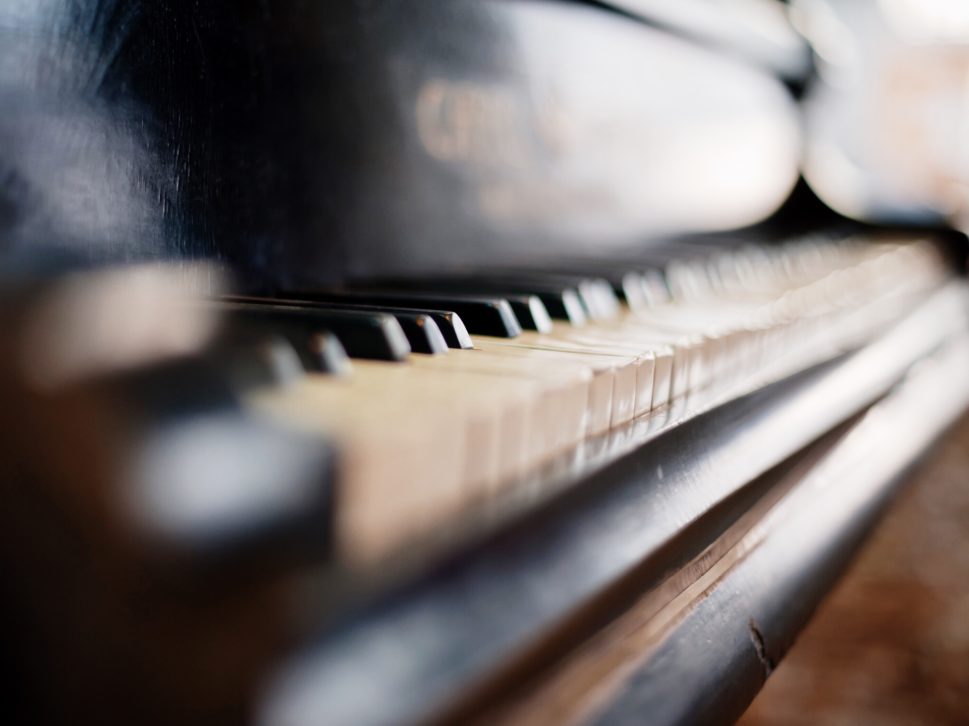One thing that caught me off guard in music is the sheer amount of music I’m expected to learn in a short amount of time. If I’m lucky, I’ll get a day to look at the music before I must play it. On good days I’ll have some time that day to look at it. Usually, people plop a score down, count it off, and that’s that.
So how does one learn a lot of music in little time? First, you limit the scope of the work. Second, you work efficiently within the limits you set.
Since these limits are set by context, I won’t provide any catch-all strategies. What I have here instead is a framework that I use time and time again, that you could try out too.
A lot of people give blanket strategies. “Just make charts.” “Work on your sight-reading.” “Listen to more music on your free time.” But generic advice never helps.
What if takes a longer time to make a chart than it does to learn the piece? Or, you already have a chart, wouldn’t it be faster just to correct a few typos?
How useful is sight-reading? Sure, I can read almost anything these days. But I don’t have a large working memory of songs like a lot of my peers do. Sight-reading and learning are different processes, and we need to distinguish when reading is useful and when learning is useful, since reading takes less time and not all gigs require that you learn the songs on a deep level. (If you balk at this, then I’m sincerely jealous of how much free time you have to learn thousands of songs in all twelve keys and their histories and intricacies between different recordings)
And who isn’t constantly listening to music? I’m no exception. That doesn’t mean I know how to learn songs quickly!
Anyways, here are some strategies I use to limit my work and work efficiently. I also have some bonus tips on learning music fast at the end.
1) Setting Limitations
Generally, I try to work as little as possible on any given piece of music. This isn’t out of laziness, but rather volume and time constraints. There is a large amount of music to learn, and almost no time to learn it.
When I set limitations on what I do, ask the following types of questions:
- What is the classification of work?
- Will I be able to read music on the job?
- How many rehearsals will we have?
- How is the music delivered?
Here are how I answer them.
What is the classification of work?
Piano work generally comes in these types:
- Recordings
- Rehearsals for some type of ensemble (orchestra, choir, musicals, chamber ensemble, jazz band, etc.)
- Performances
These are not exclusive categories, and often overlap. But they help in setting limitations on how much time spend with the music.
Recordings
For instance, recordings will require a lot of time practicing, since there is little room for error during the recording process. Unless I’m making rehearsal recordings at home, then I will simply record everything at 50 BPM and speed it up in the DAW later, so that no one project takes more than an hour of time.
Rehearsals
Most of what I do currently is as some type of rehearsal pianist. In these situations, I spend more time learning the vocal parts, since the singers need accurate parts, and singers hate hearing pianists figure things out. I spend little, if any, time learning accompaniment parts in these situations. I usually play pop patterns to make the accompaniment parts better. Consequently, I don’t practice the chart as much as those patterns I constantly revise, and I spend time refining chord voicings over time.
Performances
If we’re performing, the time spent with the music depends on the nature of the performance. If we already had a lot of rehearsals, I don’t have to spend time on the music outside of rehearsal. If I get to read the music, I don’t have to memorize it. If the performance is background music, it’s ultimately not important to learn thoroughly, since the audience isn’t listening (don’t kid yourself). If it is a recital or competition, then that requires a great deal of preparation.
Will I be able to read music on the job?
When music is provided and read during the performance, that saves learning time, since memorization is no longer necessary.
How many rehearsals will we have?
Frequent rehearsals mean that it is not necessary to work on the music, other than a superficial level to get the notes correct. Even that might be a waste of time if the director chooses new keys or interprets rhythms differently than what is notated in some sections.
How is the music delivered?
Music is delivered as a score or audio file.
When the music is a score, it might not be readable at first, so there could be some additional preparation to make it readable for rehearsal, such as indicating page marks, or re-beaming incorrectly beamed rhythms. Otherwise, additional preparation is unnecessary and should be avoided.
Audio files may require some type of transcription. Audio files always take the most amount of time to learn, but in these situations, it’s best to listen to the music on a loop repeatedly until it sinks in. Usually, this music has the most improvisation, so it’s not necessary to learn specific melodies as much as how long each section is.
2) Efficiency vs. Laziness
Some people might think I’m lazy for learning music like this, or “cheating” by recording parts in this way.
The difference between laziness and efficiency is that laziness doesn’t care about quality and speed, while efficiency is ensuring that products are delivered quickly without losing quality. I’d rather spend 6 hours recording six separate pieces for six separate clients, rather than 2 hours working for one client.
Since I work efficiently, I can offer more revisions, since the revisions don’t take any time to complete. This means clients get more value for my rates than what other musicians provide.
Bonus tips:
- When sight reading, read for the chord and pattern, not the specific notes (I’ll write more about this later)
- Music is all “lego music.” That is, you can
learn a set of building blocks (“legos”) and use your discretion and refinement
to pick the correct musical phrase at the correct time. Yes, this applies to
classical music, too.
- This isn’t to trivialize what we do as musicians. It’s just how I’ve always viewed music. Remember: just because you have all the ideas in front of you, doesn’t mean you’ll know what do with them!
- Most charts are great time savers, but they don’t have a lot of useful accompaniment parts. Play something that sounds better than the chart. Left hand octave doubling, avoid doubling the melody with the vocalists (if requested), using 10ths in the left-hand, and using your own voicings are ways to get you started making something sound better.
- When reading a Piano-Vocal sheet with chords, just ignore the piano part.
- In piano music, chords are outlined in the left-hand part in octaves, so you can usually tell what chord you’re playing just by reading the left hand and the key
- There’s a big difference between reading on your own and reading in front of people. Have some friends over, have some wine, open a music book, and read it in front of them to get used to the pressure.
- Most musicians in a certain specialization work with the same repertoire over and over again, so learning the canon in each specialty is useful
- Work on your abilities to focus and sustain attention over long periods of time without spending too much mental energy.
- If the band uses drugs in rehearsals, make sure everyone is at the same high. Otherwise, members will not be able to properly connect at the same wavelength. This is hard to do. For this reason, it is usually best to avoid drug abuse at rehearsals.



